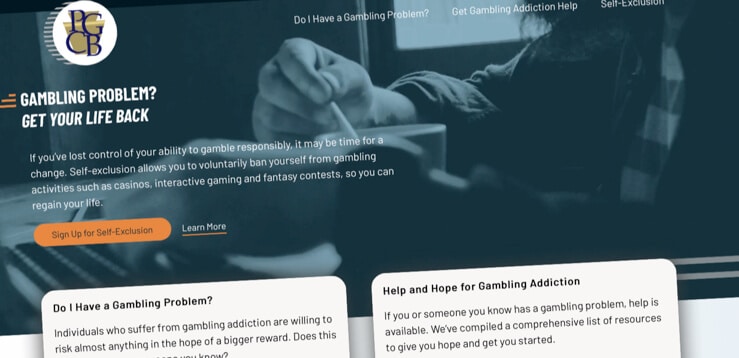The Pennsylvania Gaming Control Board has launched a new problem gambling website with more information and resources for individuals who may be suffering from over-indulging.
At www.ResponsiblePlay.pa.gov, individuals can begin the process of signing up for the state’s self-exclusion lists, obtain information about state-subsidized treatment, learn about Gamblers Anonymous meetings, and more.
The new site also provides basic information, such as self-completed surveys, to help people determine if they have a problem.
It’s an improvement upon what already existed
The gaming board has always had basic data available on its own website, which carries a link to ResponsiblePlay.pa.gov, but the new site is far more comprehensive with clear, easy-to-use guidance.
“Gambling addiction is real, is preventable and is treatable, and the PGCB and its partners want all PA citizens who face the perils of problem gambling to know that treatment is available and effective,” said Elizabeth Lanza, director of the gaming board’s Office of Compulsive and Problem Gambling.
“This includes the launch of a new website with easy-to-find information on detecting a gambling problem along with various avenues available for help.”
It is generally estimated that 1% to 2% of the adult population has a gambling disorder, in which they’re unable to control their impulses despite harm being done to themselves, their loved ones, and their finances.
Question: Do I have a gambling problem?
The website has a 10-question survey to help individuals answer: “Do I have a gambling problem?” It asks questions such as whether funds have been borrowed or bills have gone unpaid for the purpose of gambling.
It also provides “10 Rules of Responsible Gambling” (No. 1: If you choose to gamble, do so for entertainment purposes, rather than expecting to win) and devotes special attention to information about problem gambling in teens, older adults, and the workplace.
Much of the information on the site is also available by calling 1-800-GAMBLER for a personal help line conversation.
The new website’s launch coincides with the arrival of March as Problem Gambling Awareness Month, in which the state and private organizations such as the Council on Compulsive Gambling of Pennsylvania conduct activities to focus on the issue.






